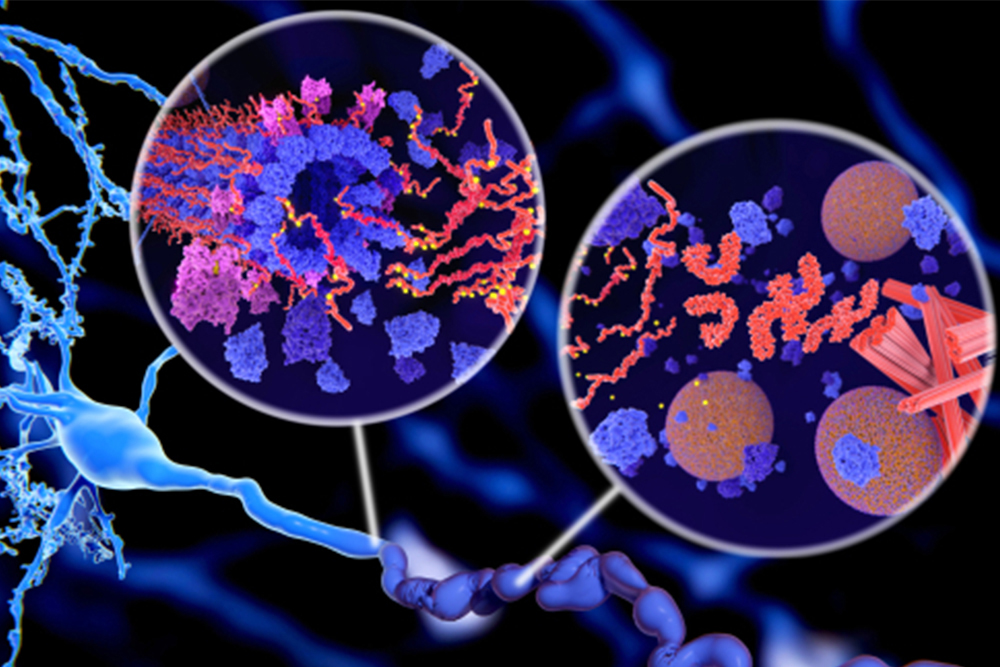Exploring the Link Between Entertainment Activities and Alzheimer’s Disease

Alzheimer’s disease (AD) is the most common form of dementia, characterized by gradual cognitive decline and behavioral changes. With rising prevalence and mortality rates, the focus has shifted to prevention strategies, especially since there are no pharmacological treatments that halt disease progression.
Palliative Care for Advanced Dementia: An Update on Effectiveness and Evidence Gaps

Dementia is a chronic and progressive neurodegenerative disease that leads to severe cognitive impairment and functional dependence in its advanced stages. Despite the growing need for palliative care for individuals with advanced dementia, traditional palliative approaches have largely focused on patients with cancer. This review updates previous findings to assess the effects of palliative care interventions in advanced dementia.
Rising Dementia Cases Demand Improved Hospital Care: Nursing Interventions Key to Better Outcomes

The global dementia population is rapidly increasing, projected to exceed 75 million by 2030. This growth emphasizes the need to improve healthcare services, particularly in acute hospital settings, where nurses play a crucial role in shaping the experiences of patients with dementia. This review synthesizes evidence on nursing interventions aimed at enhancing care for hospitalized patients with dementia, guiding future intervention development and implementation.
Global Dementia Crisis: 75% of Patients Face Behavioral Symptoms, Highlighting Need for Consistent Care Guidelines

Dementia affects 55 million people globally, with over 75% experiencing behavioral and psychological symptoms of dementia (BPSDs). These symptoms contribute significantly to health, social, and financial burdens, including increased caregiver strain and earlier nursing home admissions. Despite the availability of both nonpharmacologic (eg, music therapy, caregiver training) and pharmacologic (eg, antipsychotics, antidepressants) treatments, there is considerable variation in clinical practice, with nonpharmacologic interventions often underutilized due to barriers like limited time and resources.
Obstructive Sleep Apnea Prevalence in Dementia

Obstructive sleep apnea (OSA) is prevalent in the general population, with many cases undiagnosed, and it is also common among individuals with dementia, particularly those with Alzheimer’s disease (AD) and mild cognitive impairment (MCI). OSA is associated with factors that may exacerbate AD pathology, such as amyloid and tau accumulation. The standard treatment for OSA is continuous positive airway pressure (CPAP), which has shown potential benefits for cognition, although adherence to CPAP treatment remains low, especially among those with cognitive impairments.
Global Study Highlights Cultural and Educational Impact on Alzheimer’s Disease Research and Understanding

This review provides an in-depth exploration of Alzheimer’s disease (AD) in a global context, emphasizing the need for a cross-cultural neuropsychological perspective. The study underscores the critical role of cultural variables in understanding and assessing neurological disorders. It also highlights the importance of considering language, country of origin, and race in cognitive neuroscience and critically examines the historical and scientific application of race in research.
Systematic Review Highlights Alzheimer’s Disease as Top Neurodegenerative Disease

Authors of a comprehensive systematic review focused on Alzheimer’s disease (AD) and its impact over the last decade highlight its status as the most common neurodegenerative disease globally. Drawing from databases like Embase, Medline, and the Cochrane Library, the review considered observational studies from various countries that reported on incidence, prevalence, comorbidities, and outcomes related to AD. These outcomes included aspects of disability and mortality/life expectancy in individuals with mild cognitive impairment (MCI) due to AD, or those with mild, moderate, or severe AD dementia.
Study Reveals Music Therapy’s Positive Impact on Alzheimer’s Cognitive Functions

Researchers of a study evaluated the impact of music therapy on the cognitive functions of Alzheimer’s disease. The research involved a systematic literature search across various databases, focusing on randomized controlled trials that compared music therapy with standard care or non-musical interventions, specifically assessing cognitive outcomes like memory, language, and attention.
Insights in Alzheimer’s Disease Research: Amyloid-Beta, Tau Tangles, and Beyond

Researchers of a study delved into the advancements in Alzheimer’s disease (AD) research, focusing on understanding its neuropathology and developing potential treatments. They also reexamined the role of amyloid-beta as a component of the brain’s immune response and explored how chronic inflammation may influence the development of the disease. Tau neurofibrillary tangles, researchers noted, are increasingly seen as a primary cause of cognitive impairment in AD, with new imaging techniques enabling the study of tau’s distribution in living patients. Moreover, attention is being given to AD-mimicking diseases such as limbic-predominant age-related TDP-43 encephalopathy and primary age-related tauopathy, both of which can mimic AD symptoms but have distinct pathologies.
Strategies for Alzheimer’s Disease Care: Managing Behavioral Changes, Reducing Stress for Patients and Caregivers

Authors of an article looked at the unique challenges in caring for someone with Alzheimer’s disease (AD) or dementia, focusing on managing behavioral and personality changes such as aggression, hallucinations, and changes in sleeping or eating habits. Implementing simple changes can alleviate stress and improve both the patient’s and caregiver’s experience. Identifying the triggers of stressful behaviors, using reassuring body language and maintaining a sense of humor are key. Creating a calming environment, addressing the patient’s needs, and responding appropriately can also help manage difficult behaviors.

